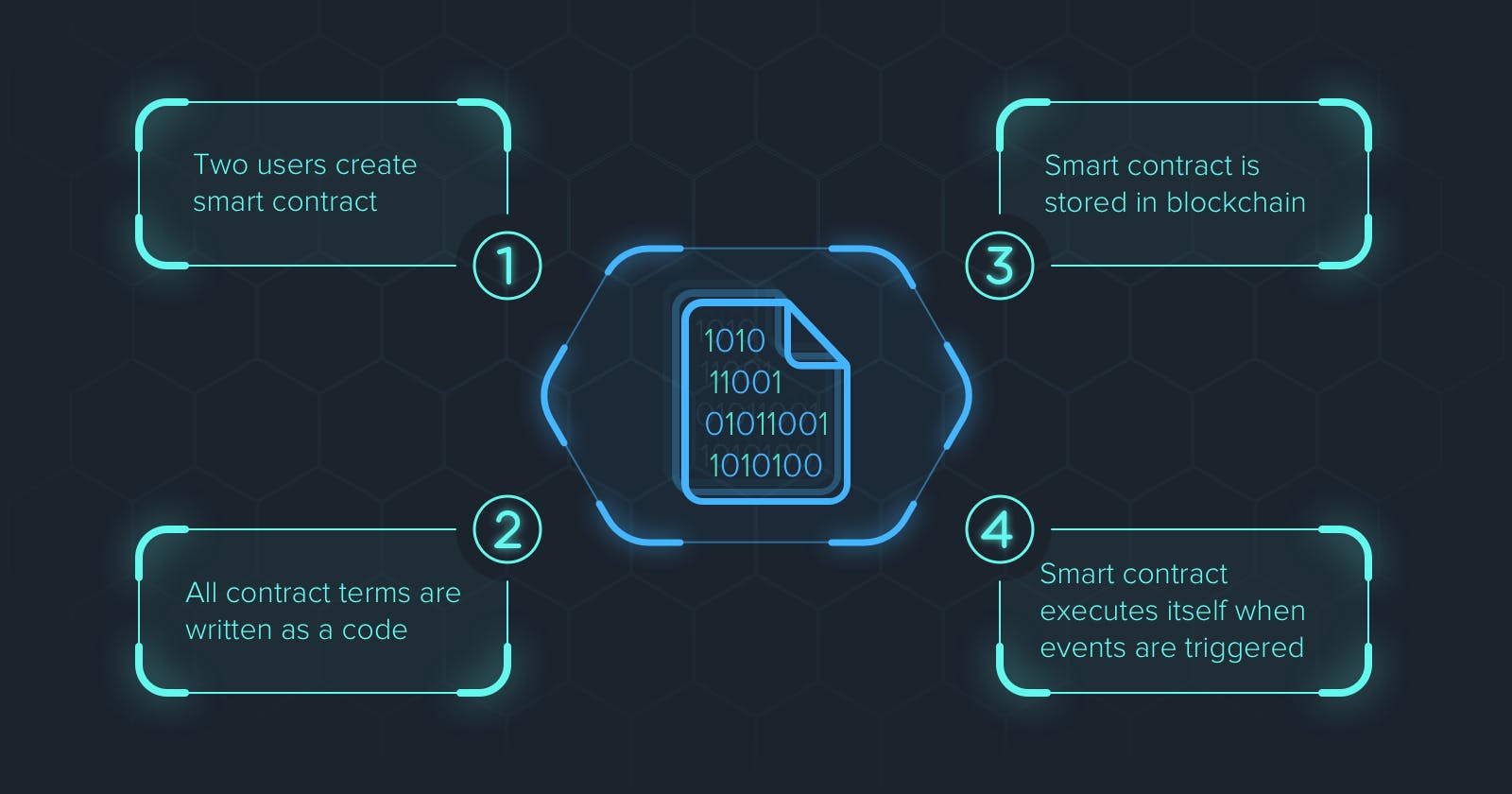Introduction
Welcome back to our "Beginner's Guide to Blockchain Development" series! In the vast landscape of blockchain technology, one concept that stands out for its potential to revolutionize various industries is Smart Contracts. These self-executing contracts, embedded into blockchain networks, offer a myriad of benefits, enabling trustless and transparent interactions between parties. In this technical blog, we will delve into the inner workings of smart contracts, explore their advantages, and examine real-world use cases.
What are Smart Contracts?
At their core, smart contracts are programmable agreements that run on blockchain networks. They embody the terms and conditions of an agreement in code, ensuring that they are executed automatically once predetermined conditions are met. The autonomous nature of smart contracts eliminates the need for intermediaries, providing a decentralized and tamper-resistant approach to conducting transactions.
How do Smart Contracts Work?
Smart contracts are written in specific programming languages,which are suitable for the target blockchain platform, such as Solidity for Ethereum. Let's take a simplified example of a digital asset transfer:
// Smart Contract Example
contract DigitalAssetTransfer {
address public seller;
address public buyer;
bool public assetTransferred;
constructor() {
seller = msg.sender;
}
function buyAsset() public payable {
require(msg.value > 0 && !assetTransferred, "Invalid transaction");
buyer = msg.sender;
assetTransferred = true;
}
}
In this example, a smart contract manages the transfer of a digital asset between a seller and a buyer. The contract's code defines the rules: the asset can only be purchased once, and the buyer must send a certain amount of cryptocurrency as payment. Once the buyer fulfills these conditions, the smart contract automatically executes the asset transfer.
Benefits of Smart Contracts
Trust and Transparency:
Smart contracts operate on a decentralized blockchain, ensuring that all participants can trust that the agreed-upon terms will be executed as written. Since the contract code is visible and auditable on the blockchain, transparency is enhanced.
Reduced Intermediaries:
By eliminating intermediaries like banks or legal representatives, smart contracts reduce costs and eliminate single points of failure and expedite processes.
Security:
Blockchain's cryptographic features guarantee the security of smart contracts. Once deployed, they are immutable and immune to tampering, safeguarding the integrity of the agreements.
Efficiency:
Automation facilitated by smart contracts streamlines processes and reduces the need for manual intervention, resulting in increased efficiency.
Use Cases of Smart Contracts
Decentralized Finance (DeFi):
DeFi is a prominent sector that leverages smart contracts for decentralized lending, borrowing, and automated trading. Users can interact with financial services without relying on traditional institutions.
Supply Chain Management:
Smart contracts enable end-to-end tracking of products in the supply chain, enhancing transparency and combating counterfeiting.
Voting Systems:
Implementing voting mechanisms through smart contracts ensures secure and tamper-resistant elections, enhancing trust in democratic processes.
Insurance Claims:
Smart contracts automate insurance claim processes, making them faster, transparent, and less prone to fraud.
Conclusion
Smart contracts have emerged as a powerful and transformative technology in the blockchain realm. Their potential to reshape industries, streamline processes, and create trustless environments makes them an exciting area of exploration. As blockchain technology continues to evolve, as we can anticipate for more innovative and diverse use cases for smart contracts.
The future is bright for smart contracts, and their integration with other emerging technologies is likely to open new frontiers of possibilities. As we continue to explore and embrace this technology, we look forward to witnessing the continued growth and advancement of smart contracts in the years to come.
Stay tuned for more exciting discoveries in the world of blockchain technology in our upcoming articles!
